June 6, 2016
If you’ve ever laid awake at night unable to sleep, woken up at 2am or 3am and couldn’t get back to sleep, had difficulty turning your brain off so that you could get much-needed rest, or felt the notorious phenomenon of being “tired-and-wired”, you’ve no doubt spent at least a few minutes consulting good ‘ol Dr. Google about how sleep works.
And if that is indeed the case, you’ve likely come across terms like melatonin, the pineal gland, GABA, the suprachiasmatic nucleus, the frontal cortex, the autonomic nervous system and all kinds of other nerdy scientific sleep-wiring parameters related to what your brain is supposed to be churning out when you sleep and why you can’t get the Z’s you want.
Some of those terms you may understand, and some you may not. But regardless of whether you’re beginner, intermediate or advanced in your pursuit of an optimal, deep, restorative night’s sleep, consider what you are about to read your go-to guide for de-mystifying these terms, discovering why your brain doesn’t make enough sleep chemicals in our modern era, beating insomnia and getting better sleep forever.
Enter Doc Parsley
Dr. Kirk Parsley, who I hung out with all last week at PaleoFX, was the major resource I relied upon for penning this post.
You may recognize his name.
Doc Parsley first joined me on the podcast A Navy SEAL Physician Reveals How Hard-Charging, High-Achievers Can Fall Asleep Fast and also wrote the article How Your Ancestors Really Slept: Busting The Myths.
So why do I rely upon Doc Parsley as a resource for sleep?
Because the guy knows how to fix sleep in hard-charging folks like you and me – including the Navy SEALs. Frankly, when it comes to sleep, I’d like to rely on somebody who works with some of the most elite soldiers on the face of the planet.
Doc Parsley served as the Undersea Medical Officer at Naval Special Warfare Group One (NSWG-1) from June 2009 until January 2013. While there, he developed and supervised the group’s first sports medicine rehabilitation center. He is a former SEAL (BUD/s class 164), and a graduate of the military’s medical school in Bethesda, Uniformed Services University of Health Sciences (USUHS) in 2004. His internship was in Obstetrics and Gynecology, at Balboa Naval Hospital in 2005.
He completed a Navy residency in Hyperbarics and Diving Medicine in 2006. Doctor Parsley served as Naval Special Warfare’s expert on Sleep Medicine, and has been a member of the American Academy of Sleep Medicine since 2006. He is certified in hormonal modulation (Age-Management Medicine) and has worked as a consultant for the Life-Wellness Institute in San Diego. He travels around the world lecturing extensively on sleep, wellness, and hormonal optimization, he’s currently completing a book on sleep optimization, and he invented Sleep Remedy.
So when it comes to settling down an extremely hard-charging brain to get that hard-charging brain to sleep, Doc Parsley knows exactly what he’s talking about, and in this article, you’re going to get exactly what I’ve learned from him about the disturbing truth of why your brain probably doesn’t make enough chemicals to help you get ideal, deep, restorative sleep.
Why You Need More Melatonin Than Your Brain Naturally Produces
You may have heard of the concept that humans use the sun to adjust their biological clock. The overall driver of that biological clock is something called the SCN (suprachiasmatic nucleus for you neuro-geeks out there)—often called the “master clock”, and the main part of your nervous system that controls your entire circadian rhythm.
But what does that really mean, what does the “master clock” really control, and what does it mean for you and your precious sleep?
To answer that, we have to delve into sleep science – not too much – but some.
Let’s start here: humans (as do every other life form on earth) use the light of the sun to regulate nearly all our biological activities. Sure, single-celled organisms and plants do it in a different way than more complex animals, but we all use the sun in some way to regulate our 24 hour circadian rhythms.
We humans primarily use our eyes. Our eyes have special nerve cells in them that sense a certain frequency of light (specifically blue light), and then let the rest of our bodies know – via our brain – what we should be preparing for: sleep or wakefulness.
As the light decreases in our eyes, those nerve cells in our eyes send information to our brain’s “master clock” (the SCN), which then prompts the SCN to release chemicals that beget other chemicals, and ultimately changes the activity levels and wavelength signals of different areas of our brain to prepare us for sleep. The SCN also notifies another area of our brain, the pineal gland, that it’s time to start winding down. In return the pineal gland begins secreting a hormone that you have likely heard of: melatonin.
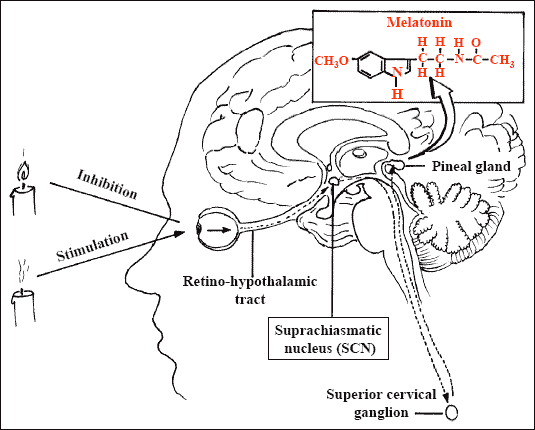
Melatonin has many functions on many areas of your brain, but one of melatonin’s main functions is to decrease your adrenal hormone secretions. This makes sense, because your adrenal gland’s job is to keep you awake, alert, and ready for life.
Here’s a perfect example of how this works…
Most Americans get to experience a small piece of the magical SCN-pineal gland-melatonin pathway on a special Thursday every November: Thanksgiving Day, which I like to refer to, due to the excessive ingestion of turkey, “Tryptophan Coma Day”.
Turkey contains the amino acid tryptophan in spades. And the unique thing about tryptophan is that it is one of the primary nutrients used to produce melatonin. So, when you eat a bunch of tryptophan, your body produces a bunch of melatonin, and that can make you feel like taking a nap, or at least lounging on the sofa in front of a football game with your eyes slowly rolling back in your head. There’s a little more science to it than thatit serves the purpose here.
So you know tryptophan can trigger this melatonin pathway, but let’s take a look at what can inhibit this pathway.
First, light streaming into your eyes, especially after the sun has gone down, will inhibit the SCN-pineal-melatonin pathway. Because your eyes are telling your brain that there is still plenty of light in the sky, electric lighting is especially notorious for inhibiting your SCN’s control of your biological clock. Some folks try to block this light with special glasses, screen covers, and computer programs. Other people simply turn off the TV and put away the phones and e-readers prior to bed.
All of these things help, but keep in mind that they are only mitigating the deleterious effects of bluelight–and they are definitely not the only key to inducing or allowing for ideal melatonin production.
The second application of all of the geeky science above is a little more subtle and flies under-the-radar. You learned earlier that your adrenals keep you awake, alert, and ready for hard-charging daily life. Unfortunately, many people in a post-industrialized world have lives that require them to be awake longer, more alert, and more ready than our ancestors did.
This leads to an excess of adrenal hormones, and a higher-than-ancestrally-normal (yep, made up that word) level of adrenal hormones results in, as you may have guessed, significantly more melatonin necessary to decrease your adrenal function before bed. This means that even if you shut off the blue light or wear the nerdy blue-light blocking glasses, you still (if living a typical modern life) have a need for “excess” melatonin over and above what your brain is hard-wired to produce naturally. It’s just the nature of the beast of living in this century of car lights at night, people texting you into the wee hours, your neighbor’s porch lights, and any other thing that flies in the face of an ancient campfire, starlight, or complete darkness.
So, in review, we have two pathways that can cause melatonin production to be hindered:
- No (or a significantly reduced) trigger from decreased light to tell your brain to make the melatonin magic happen.
- A more hectic life and higher need for adrenal hormone production than your ancestors may have experienced.
And let’s add one more melatonin killer, shall we? Because of environment, work schedule, nutrition, modern agriculture, toxins, poor water, household cleaning chemicals, personal care products, etc. many of us are deficient in many of the multiple compounds necessary to make melatonin. Doc Parsley and I discuss these compounds, which include things like vitamin D3, magnesium and omega-3 fatty acids, in extreme detail in our podcast entitled “A Navy SEAL Physician Reveals How Hard-Charging, High-Achievers Can Fall Asleep Fast”
So to fix these issues, you simply need to dump into your body all of the major supportive compounds necessaryfor your body and brain to produce melatonin, along with a tiny supportive boost (literally extremely small micro-doses of 0.1-0.5mg) of melatonin to make up for that modern light in your eyes after sundown, excess adrenal hormone production and extra environmental stress.
Why Adequate Melatonin Isn’t Enough
But that’s not enough.
You have learned about how your body has a built-in clock that helps you adjust your circadian rhythms to match the day’s length. If you still need to wrap your head around the nitty-gritty details of circadian rhythm and sleep cycles, then read this article.
You have also learned that the SCN (suprachiasmatic nucleus) is a big player in using external light to adjust your biological clock by stimulating the pineal gland to secrete a hormone called melatonin.
However, falling asleep isn’t as simple as having enough melatonin. As a matter of fact, you can dump crap-tons of melatonin into your body, but unless your body has enough of a neurotransmitter known as GABA (gamma-amino butyric acid) on board, your sleep cycles are still going to be suboptimal.
See, the SCN does several other things to help with the onset of sleep. One of these actions is to stimulate a region of the brain (known as the ventro-lateral preoptic nucleus, or VLPO) to produce the inhibitory neurotransmitter GABA. Like melatonin, GABA has multiple functions, and one of the most important of these functions is to lower the resting membrane potential of neurons in your neocortex.
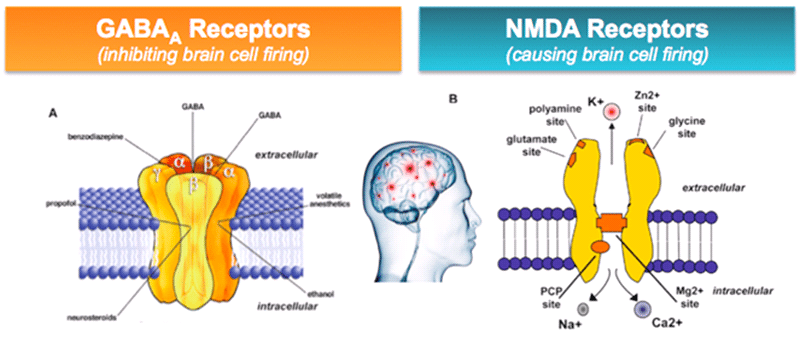
Your neocortex (which literally means “new brain”) is the convoluted mass that you probably visualize when you imagine a picture of the brain. It is the part of your brain that sets you apart from other primates, especially when it comes to the front part of this neocortex, which is called the “frontal cortex.”This area of your neocortex is where most sensory and motor information is processed, meaning that it tells you all about your world: temperature, touch, pain, movement, sounds, communication, etc., and then allows you to actively engage that world by controlling movement, speech, reaction times, etc.
Now, because your neocortex is telling you about the world around you, the more stuff going on around you (external stimuli), the more active and energy-consuming your neocortex is. That means that you have more neurons firing and it also means that those neurons are in a state that makes it very easy for them to fire and keep firing.
With an influx of GABA into the neocortex, the manner in which ions get into nerve cells is changed. When this change occurs, the overall charge of the neuron decreases. This decrease is referred to as a lowered action potential, and this means exactly what it sounds like: the neurons in your neocortex are less likely to act (or fire). Due to the presence of the GABA, it actually takes more chemical energy to get one neuron to communicate to the neurons it is connected to, thereby decreasing the overall “action potential” of individual neurons and groups of neurons.
In other words, in the presence of GABA, your brain has to work much, much harder to react and stay awake in response to external stimuli.
And this is the exact reason why, to optimize your sleep cycles and get restful, restorative sleep, you must have a combination of melatonin and GABA present in your brain and body tissues prior to sleep. Very few forms of exogenous, supplemental GABA actually cross your blood-brain barrier, but one form of GABA that passes into and acts in the brain, in addition to other body tissues, is a supplement form called “phGABA”. Doc Parsley and I discuss this compound in detail in the podcast episode A Navy SEAL Physician Reveals How Hard-Charging, High-Achievers Can Fall Asleep Fast
So GABA in your brain leads to that pre-sleep groggy bliss that you experience, and keeps external stimuli from undoing all of the good stuff that melatonin production kicks off. If you set up your light regulation well (e.g. decrease blue light in your eyes three to four hours before bed) you’ll very likely secrete an adequate amount of melatonin (assuming there are not underlying interfering nutritional deficiencies that keep the building blocks for melatonin from being present) but that melatonin will not do it’s job without adequate GABA present.
And that is why, just like Ambien and Valium and other common sleep drugs simply take a hammer to yourneocortex and induce fake, suboptimal sleep, grabbing a fistful of melatonin capsules from the1, 3, 5 or 10 melatonin capsule section of the drugstore and relying upon those alone, all by themselves, also induces fake, suboptimal sleep.
This is also why, if you fall asleep easily when you take small or large doses of melatonin, but then wake up in the middle of the night, it is likely caused by too much external stimuli prior to bed, inadequate GABA, or (as is usually the case) both.
Sleep scientists know this by studying sleeping brains in the presence or absence of adequate melatonin or GABA. When they put electrodes all over somebody’s skull, these electrodes can sense areas of the brain where a lot of neurons are firing at the same time, and this is typically expressed as brain waves. This tells a sleep scientist which brain regions are most active, and by knowing which behaviors and activities are associated with various brain regions, they can analyze whether the sleeping brain waves are conducive to consistent optimal sleep and the correct amount of time spent in each sleep cycle. I talk about about this in my article on sleep cycles.

How To Fight Your Ancestral Anti-Sleep Instincts
Your SCN-pineal gland-melatonin cycle and the effects of GABA on your neocortex is all the groundwork you need to NOW completely understand this discussion on what is interfering with how you are wired to sleep, and why your brain probably isn’t making enough chemicals to allow for optimal sleep.
It goes like this…
…above,you learned how putting light into your eyes after sundown (especially blue light from electric devices) prevents your SCN from triggering your pineal gland to secrete melatonin, and you’ve also learned that adrenal hormones decrease melatonin, while vice versa, melatonin decreases adrenal hormones. When external stimuli is also introduced (sound, conversation, activity, movement, etc.), this prevents the SCN from triggering part of your brain to produce GABA, and this makes your brain even more awake.
In contrast, when your neocortex’s action potential is decreased by the presence of GABA, the presence of melatonin, and the absence of excessive external stimuli, it makes your brain less sensitive to wake-promoting neurotransmitters and adrenal hormones, less aware of your environment and external stimuli, and more able to calm down and fall asleep.
But here is the rub; when you excessively stimulate your brain, you can literally override the effects of GABA and melatonin. If you’ve ever been super tired all day at work, and dead set on going straight home to sleep, and then somebody talked you into going to happy hour, and after a little bit of conversation, and perhaps checking out potential mates, you felt wide awake in a kind of “second-wind”, then you have experienced this phenomenon. Incidentally, the same is true when you suddenly feel wide-awake after the late-day workout that you had to force yourself through initial, ho-hum tiredness to do.

Using this very mechanism, your ancestors would have likely fought off the urge to sleep if being hunted by something or somebody. They would also have used this mechanism to fight off the desire to sleep when starving, allowing them to travel longer distances to find food, hunt novel prey, etc. And this is exactly why simply blocking blue light isn’t sufficient to trigger sleep. You must also somehow decrease external environmental stimuli, increase the presence of the inhibitory neurotransmitter GABA, or both.
So in order for you to prevent external stimuli from interfering with your sleep, you need to purposefully decrease stimulation. If this isn’t possible, and you can’t architect your life around sleep, the best solution is to leverage supplements such as micro-doses of melatonin combined with nutrients that allow your body to make it’s own endogenous melatonin combined with phGABA (the form of GABA that can actually cross your blood-brain barrier). As I discuss in this article on sleep cycles, I also like to stimulate the endocannabinoid system for additional relaxation via the use of non-THC based cannabidiol.
But before using these type of supplements, you should of course at least make an attempt at the type of normal sleep hygiene habits and sleep biohacks discussed in The Man Behind The Advanced Sleep Hacking Tactics Used By The World’s Most Elite Athletes and Sleep, Light, Alarms, Caffeine, Night Shifts, Naps, Sleeping Positions & More With Shawn Stevenson. This means not only sleeping in a cool (60-68 degrees Fahrenheit), completely dark, silent room, but also stopping work at least an hour before bed, not exercising within two hours of bedtime, decreasing noise, vibration, conversation, and stress at least one hour before bedtime, etc. As a matter of fact, when it comes to optimized sleep cycles, is actually better to go to sleep an hour later if you’ve unintentionally worked or have been highly active right up until bedtime.
So just as you would not step out of bed and immediately start lifting heavy weights, nor should you have a busy, excited brain right up until the moment you climb into bed.
In addition to these steps, here are eight other quick, easy interventions to improve your sleep:
- Decrease the blue light entering your eyes at least three hours before bed. This can be done with blue blocking glasses, blue light shields on smart phones, and a computer program called “f.lux”.
- Remember that light (even the ones that aren’t blue) are still stimulating to your brain, so keep all devices and lamps as dim as possible, and remember that your skin, not just your eyes, has photoreceptors. This means unplugging as many items as possible in your hotel room or bedroom.
- Perform your most stimulating or stressful activities early in the day, as far from bedtime as possible. That includes late night intense exercise (see below).
- Finish any exercise at least two hours before bed, and if you are doing intense workouts such as Crossfit, finish at least three hours before bed.
- Make a list of everything that keeps running through your head an hour before bed. Write it down on a notepad. I use a moleskin journal like this. Get it out of the brain. Then make a pact with yourself that you will be best able to deal with that list with an adequate night’s sleep and that you won’t let those thoughts roam through your head after lights out.
- Stop all work (employment work, paying bills, emails, research, arguments on social media to prove that someone on Twitter is severely wrong, etc.) at least one hour before your bedtime.
- Minimize all activity, emotional or intense conversations, pain, extremes in temperature, and stress a few hours before bed.
- If you find yourself stimulating your brain into wakefulness through worry or planning for the next day, then concentrate on your breath, or concentrate on systematically relaxing each muscle in your body. Specifically, try box breathing or progressive neuromuscular relaxation.
With these eight tips, along with controlling any other light saturation and external stimulation, along with the optional use of exogenous melatonin mini-doses and GABA to give your brain an extra opportunity to settle down in the face of modern stimuli, you’ll be well on your way to deep, restorative sleep.
Summary
Let’s quickly review.
- You need melatonin to sleep. Modern life keeps you from producing enough. More is not better, but controlling light and micro-dosing with 0.3-0.5mg can help, along with including the necessary melatonin pre-cursors that Doc Parsley and I discuss in this podcast.
- Melatonin is not enough. You must also ensure GABA is present by limiting external stimuli and pre-bed stress, along with using phGABA, which can cross the blood brain barrier.
- When combined with all basic sleep hygiene protocols (cold, dark, silence, etc.) and, if you follow my own personal protocol, some legal stimulation of the endocannibinoid system, you will solve 99% of sleep and insomnia issues.
And sure, if you live on a pristine Himalayan mountaintop where you grow your own food, and you work during the day in the absence of modern light while sleeping in an environment that completely replicates what your ancestors slept in, the use of “better living through science” to help you sleep is likely not necessary.
But as an author with a laptop, a guy who uses a phone (even at night), someone whose entire home is not necessarily lit with ancestral torchlight, someone who travels on airplanes across multiple time zones, etc., etc., etc., this 100% ancestral, ideal environment is not the case with me, so I simply use the smart strategies you just discovered.
Let me know how these tips work for you, check out Doc Parsley's Sleep Remedy here and use code BEN10 to save 10%. Leave your questions, thoughts and feedback on better sleep in the comments section below.


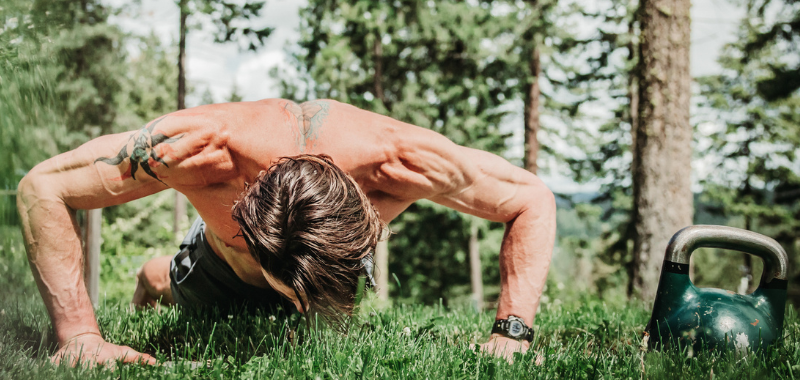

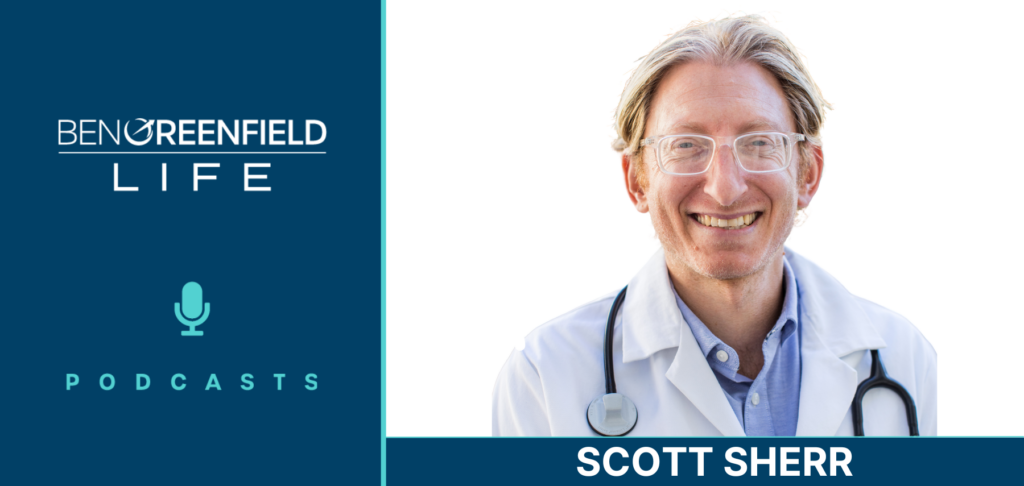
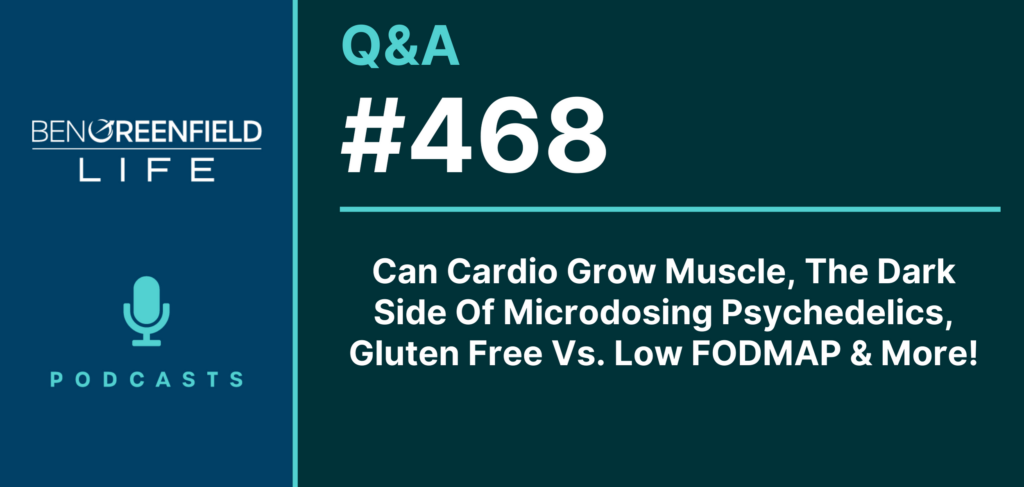

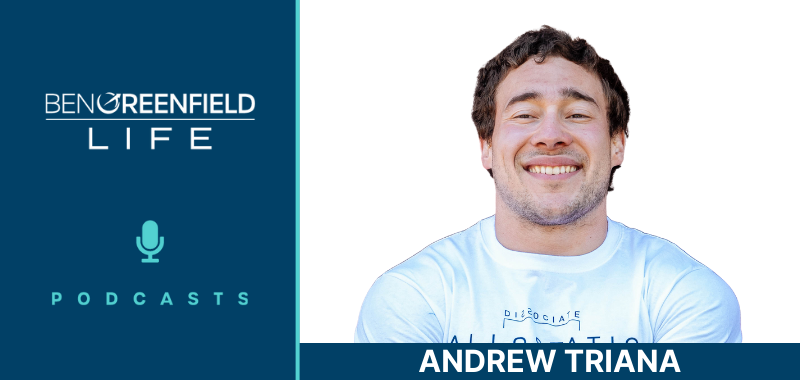
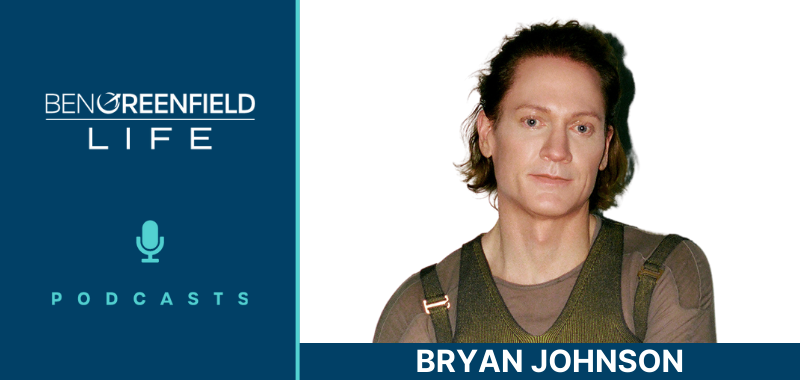
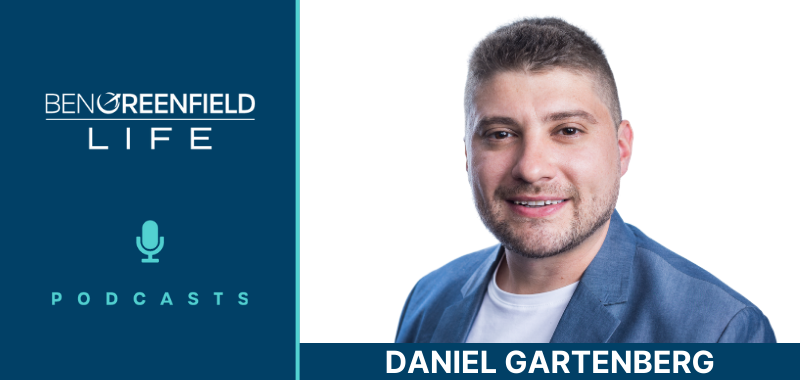
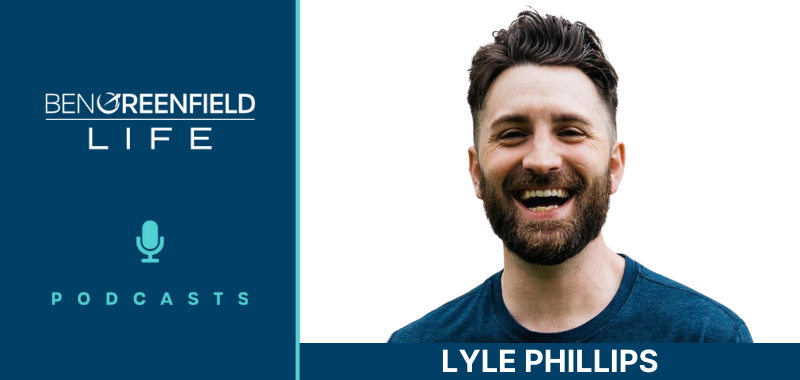

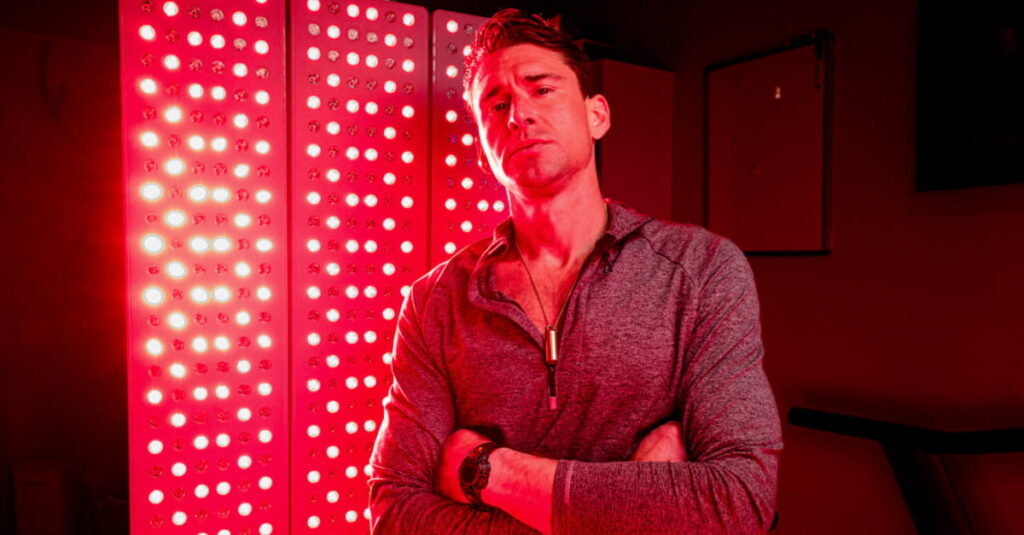
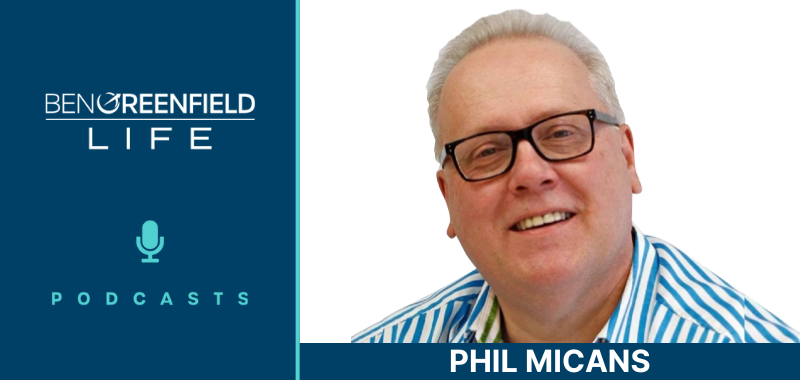
Ben-
You state here that you don’t need much exogenous melatonin but this website that you’re promoted on says the opposite:
https://www.mitozen.com/testimonials/?v=0180bf836…
Can you explain your stance? Is large amounts of additional melatonin helping you sleep?
Kevin
Hi Ben,
in this article you outline clearly why exogenous melatonin supplementation is needed and even crucial for one’s sleep health along with GABA.
However, in the article on battling jet-lag you state that melatonin should only be used when travelling over different time zones and not non-stop in lets say 3mg/day dosage.
What is the ultimate truth here than (is it somewhere in the middle) and which supplements should be considered along other factors for a well-rounded and restful sleep?
THX man for what you do….!
In a nutshell, daily MICRODOSES of melatonin (e.g. less than 0.3mg or so as I do with this) are fine and then larger doses when managing jet lag can be added in (I take up to 80mg when traveling!).
Awesome article! There are a lot of great tips in here. I discovered f.lux around a year ago and it has helped me sleep faster and better. I tended to work long hours into the night and I found out that the blue light from my computer is messing with my sleep. These days, I shut down all gadgets by around 9 p.m. and concentrate on relaxing, having a good time before bed. A few nights, I wake up in the middle of the night (particularly when I’m stressed about work), but it helps if I concentrate on my breathing. Oh, yeah, I also keep a list of things to do tomorrow before I go to bed. It works like a mental dump of sorts. I’m gonna dump all of these things in my mind into this list and I’m gonna forget about them until tomorrow. Works like a charm!
Hi Ben,
Is it possible the Oura ring may not measure deep sleep correctly? For example: 51BPM (9.30pm), 8 hrs 22min total, sleep from 9.20pm-6.15am, 1min deep sleep, REM 3hrs 4min (34%), Light 5hrs 32min (61%), Awake 15min (4%). This sort of reading has happened twice before but generally I have deep sleep cycles of between 2-7% (occasionally 9-10%) which is quite low and does not seem to be effected by a multitude of biohacks. What sort of factors could the ring miss interpret as REM sleep and not deep? I tend to have large amount of REM sleep 30-54%.
I have good sleep latency and onset.
I have trialled small amounts (0.3-0.6mg) of melatonin, binauaral beats, 100mg PS, 200mg Theanine and 500mg phGABA (from PrimaForce) with no effect or if anything may be a slight change decrease in deep sleep.
I have also trialled this device:
MagnaField from MagnacareUK | PEMF Therapy
It has an induction of 0.4mV @ 0.2uT, so quite low strength field but magnetic field range of 2-3metres in all directions due to its generating pad.
It was invented by Bob Grace (Australian) an more recently sold/ incorporated into the UK company due to issues we were having here in Australia with the TGA.
You can set it from anywhere from 0.5 – 18 Hz frequency with a 20 min single cycle or 20min on 20 min off repeating cycles.
I have trialled 0.5 Hz for a 4x on-off cycle at the start of sleep with no change in deep sleep. I see you have suggested EarthPulse uses 10Hz (not sure if this changes through the cycle), is this a better frequency?
It’s unclear to me if the SR1 uses 4Hz or < 1Hz pulses at 0.05 or 5 gauss. Your 'A Tiny 1/2 Ounce Piece……' suggests 0.05 gauss but the 'Dr Pawluk article link within: How Sleep cycles Work' article suggests 0.5mT/ 5 Gauss @ 4 Hz generator but then also TMS pulse @ < 1 Hz, so not sure if trialling 0.5 -1Hz or may be 3-4Hz would be beneficial.
Thank you for any suggestions you can give.
Tim
Hey Tim, here's the response from the OURA team:
Firstly, your sleep can be quite good even if you don't have very much N3 (=deep) sleep. The ŌURA ring detects the characteristics in signals that associate with N3 sleep (regular breathing, restful sleep, certain patterns in pulse wave amplitude and HRV), but it is important to understand that even in the brain wave signals there is both intra-individual and inter-individual variability in the frequency of delta waves, for example (more or less delta waves, and at certain cut-point sleep is determined as N2 (light) instead of N3 (deep)). BTW, the term "light sleep" (comes from the sleep lab) is actually not very fitting a term for N2.
There is certainly some inter-individual variability in how breathing and HRV characteristics and the exact number of motions allowed for the point where N3 starts and N2 ends, yet the OURA ring will react to changes when more N3 starts to accumulate. There is some quantification challenge if N2 only deepens only a little but doesn't reach the criteria set for N3.
It seems you have done some extensive hacking for getting more deep sleep but many times the hacks are much simpler. For example, we have seen plenty of interesting stats by plotting bedtime start times against amount of deep sleep as well as the stability of your bedtime starts over past few days against your deep sleep etc. This indicates that the regular bedtimes and wake up times help keeping the circadian alignment and help the body learn the rhythm over the time. That leads to more stable sleep patterns.
To inspect the situation further:
– check that the ring fits nicely and sits snugly on a particular finger (it can be checked from the data if you send us the bug report in Settings)
– stick to one orientation/direction of the ring (the charging pads towards the nail for example)
– first stick to a regular bedtime and wake-up time before starting other experiments
– pay attention to wake-sleep cycle and circadian alignment (reflected e.g in skin temperature being clearly higher during the night than the day, can also be checked from the bug report)
They said they can definitely inspect further if you send the bug report via email to their support!
Ben,
Web site below seems to have copied a large portion of your article….Some paragraphs/sentences are taken verbatum:
http://robbwolf.com/2015/06/16/how-we-are-wired-t…
Found it by chance right after reading your article.
Cheers,
Big Fan
PROBABLY because Doc Parsley helped write both articles.
These are some great tips. I knew limited blue light before going to bed from devices like TV, phone and iPads were a good way to help your sleep, but some of this other stuff I didn’t know could affect it at all. It can be really hard to decrease stimulation before sleep, especially when we’re programmed to want to be productive and get stuff done all the time, but this article has some great tips on how to do that.
Any advice for kids? My 3 and 6 year old boys are a wreck, over tired for years. Near perfect primal diet, rarely ever any TV or screen time, tons of time outside being active. We have what I think is a good bed time routine. Thanks!
The Cannabadile and Doc Parsley’s cocktail are awesome. However I have not been able to try both at once due to the expense.
It is a shame that it costs close to $200 a month (including shipping) to get a decent night sleep. That is a cheap car payment.
Well worth it in my opinion to combat the effects of our modern environment.
Good article. What I feel must also be discussed is the fact that many have lost the ability to store glycogen properly. This reduction of the onboard glycogen stores combined with low sodium stores causes a rush of cortisol and adrenalin in the early hours to wake you. That fact that one’s blood sugar is low creates a priority stress response. Try about 15 grams of carbs and some salt before bed. Drink half and keep the other half bedside incase you wake. I like grape juice or orange juice. Open this helps. Helped many of my clients.
A small amount of salty cheese, like aged cheddar, with a tsp of raw honey also works well.
Hey Ben, and how much phGABA should we use?
The exact amount in Sleep Remedy (proprietary dosage but it works perfectly)…
But what if i want to buy separately? I have a sleep product already that contains melatonin
Look at PHENIBUT but it’s not something you want to take everyday.
This is a superb overview of the sleep / melatonin conundrum
I used to wonder why I only need 0.1mg of melatonin to give me solid sleep and why any more leaves me drowsy all the next day
Now I understand that since I take a lot of supplements like Vitamin D + Omega-3 + magnesium my body has all the multiple compounds to make the melatonin work effectively
If you don’t take the supplements, I liken it to a car running on empty and always running out of gas or a laser printer constantly running out of toner – you need to keep the tank of nutrients topped up in your body and have plenty available for when you need them !
Great article – thank you
.
Hi
We’re can I get phGaba
Doc Parsley sleep remedy cannot be delivered in Canada
Strange
I tried many times after your first podcast with him
Thanks
Email [email protected] and they'll get you sorted!